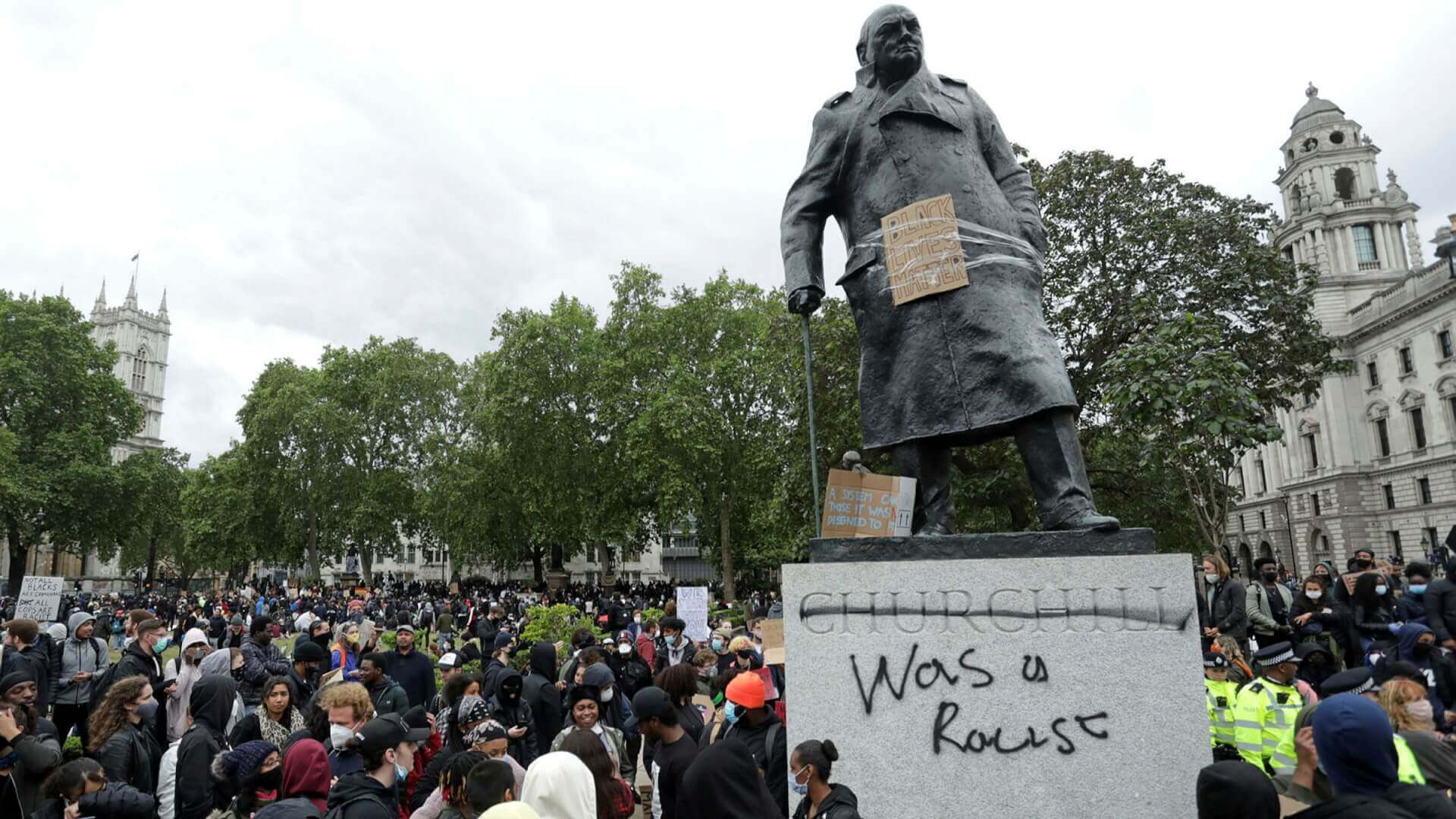Amid the ongoing Black Lives Matters protests and the ensuing movement to remove public monuments that honor slave-traders, slave-owners, and colonialists, PM Boris Johnson said that “noone who cares about this country” can look away. That being said, while he acknowledged that there is “much more that we need to do” to confront racism, Johnson also warned that Britain cannot “photoshop”, “edit”, or “censor” history, or “re-write the past”, by removing statues of historical figures, as it would “distort” the past.
Over the weekend, counter-protestors took to the streets to protect the statues in question after several called for statues of Winston Churchill to be taken down. Last week, a Churchill statue was spray-painted with the words “was a racist” under his name. After this, the statue was ‘boxed-up’ by London Mayor Sadiq Khan.
Last week, a statue of slave trader Edward Colston was tossed into the harbor by protestors. The London mayor also committed to conducting a review of any and all statues with links to slavery and said that they should be taken down. Accordingly, a statue of slaveholder Robert Milligan was removed from outside the Museum of London Docklands.
Although Churchill is celebrated for his contribution to the Allied victory in World War II, his past is littered with racism against non-White communities. He described colonialism as necessary to enlighten “primitive” races. He also murdered Pashtun tribesmen in Afghanistan to teach them “the superiority of the British race” in 1897; suggested bombing Irish protestors in 1920; proposed using chemical weapons against the Kurds and Indians; forced 150,000 Kenyans into concentration camps to make way for white colonialists; ordered the diversion of food supplies from “beastly” Indians that resulted in the death of 4 million in the 1943 Bengal Famine; described his role in British-run concentration camps during the Boer Wars as “great fun”; referred to Palestinians as "barbaric hordes who ate little but camel dung”; and proudly boasted of killing three “savages” in Sudan. In fact, his own secretary of state for India, Leopold Amery, said that he saw little difference between Churchill and Adolf Hitler.
However, Johnson described Churchill as a “hero” and “one of the country’s greatest ever leaders”, and said that it was the “height of lunacy” to accuse him of racism. He reaffirmed, “I will resist with every breath in my body any attempt to remove that statue from Parliament Square, and the sooner his protective shielding comes off the better.”
Nevertheless, the PM also said that he was establishing a commission to investigate inequality in the UK, saying it is “no use just saying that he have made huge progress in tackling racism”. He said the ‘cross-governmental commission’ will delve into “all aspects of inequality- in employment, in health outcomes, in academic and other walks of life”. The commission will be headed by equalities minister Kemi Badenoch and will deploy an independent chairperson to ensure that the body has a “mix of ethnic, social, and professional backgrounds” to conduct a well-rounded analysis.
Given his bold embrace of Churchill and the fact that previous inquiries–such as the Lammy review of Black, Asian, and minority ethnic (BAME) communities in the criminal justice system, and ex-PM Theresa May’s Race Disparity Audit–have failed to yield significant changes, skepticism is rife.
One wonders how keenly Johnson is listening to what he describes as the “legitimate feelings of outrage” within BAME communities, when, in the same breath, he tells them to “stay away from these protests”.
PM Johnson Establishes Race Inequality Commission, But Vows to Protect Churchill Statue
Johnson warned that Britain cannot photoshop its past, describing Churchill as a hero.
June 15, 2020

IMAGE SOURCE: ISABEL INFANTES / AFP
